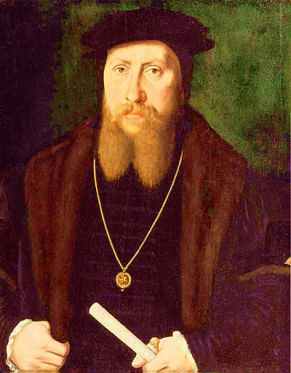William Paget
Jump to navigation
Jump to search
Sir William Paget, 1st Baron Paget of Beaudesert as played by Gerry O'Brien
UNFORGETTABLE CHARACTER QUOTES
DEFINING EPISODES | MEMORABLE SCENES
PHOTOS
| born c.1506 – died 9 June 1563 Character's backstory: Son of John, one of the serjeants-at-mace of the city of London, he was born in London in 1506. His father was said to have been of humble origin from Wednesbury, Staffordshire. Educated at St Paul’s School, and at Trinity Hall, Cambridge, proceeding afterwards to the university of Paris. Probably through the influence of Stephen Gardiner, who had early befriended Paget, he was employed by Henry VIII in several important diplomatic missions; in 1532 he was appointed clerk of the signet and soon afterwards of the privy council. He acquired large estates from Henry VIII on the dissolution of the monasteries. He became secretary to Queen Anne of Cleves in 1539, and in 1543 he was sworn of the privy council. He was Secretary of State with Thomas Wriothesley (Risley), Earl of Southampton, 1543 and 1544, and again with Sir William Petre, 1544 to 1547. Henry VIII in his later years relied much on his advice, named him as one of the executors of his will, and appointed him one of the council to act during the minority of Edward VI. Gentility: Position: Clerk of the signet,Secretary of state, Comptroller of the Royal Household, Lord Privy Seal Personality type: Signature look: Endearing trait(s): Annoying trait(s):
| 
Click EasyEdit to update this page! (Don't see the EasyEdit button above? <a href="../#signin" target="_self">Sign in</a> or <a href="../accountnew" target="_self">Sign up</a>.) | ||
CHARACTER CONNECTIONSFamily members: Marriage: Anne Preston 4 sons | Friends: Bishop Stephen Gardiner Edward Seymour Enemies: |
UNFORGETTABLE CHARACTER QUOTES
DEFINING EPISODES | MEMORABLE SCENES
PHOTOS
 |  |